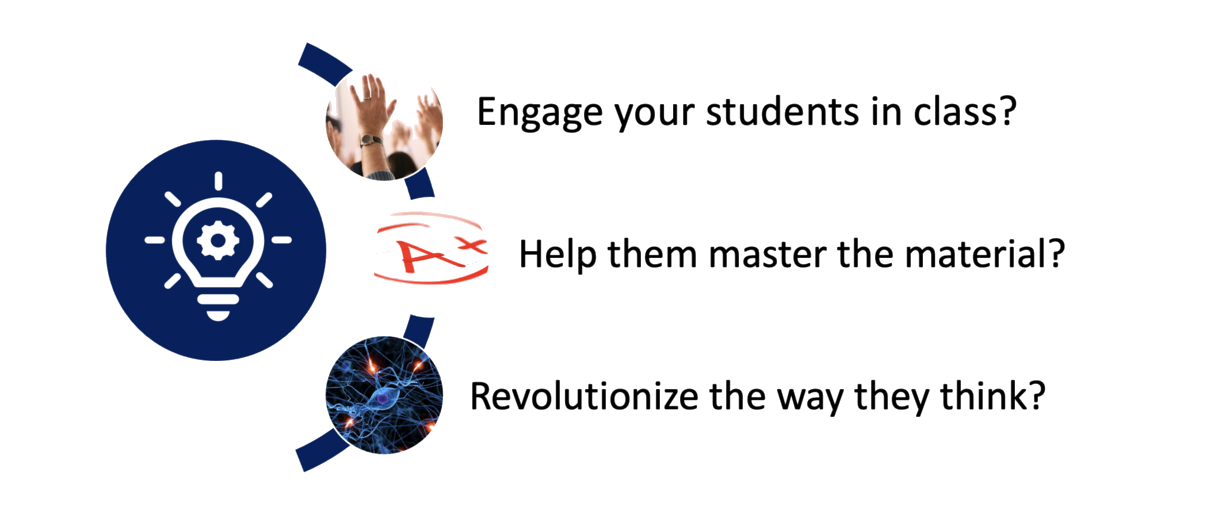Short Critical Thinking Activities
What if you could...

Critical thinking does not always have to involve long, detailed projects! Incorporate these short activities in your existing curriculum to help your students challenge their assumptions, expand their mindset, and experience a class they’ll never forget.
Activities
Cognitive Appraisal
Explain to an Extraterrestrial
Evaluating Assumptions
Debate Dialogue
Questioning Evidence
Building Awareness
KWL Charts
Learning Journal
Driving Forces
Workshop
WCTL Critical Thinking Workshop
Quick Wits: Encouraging Students to Think More Deeply
“How do you know?”
“Has it always been this way?”
“Is your source credible?”
Are you looking for innovative ways to encourage your students to think more deeply and critically? This one-hour workshop offers an overview of critical thinking skills and provides ideas for short class assignments that can easily be added to your current curriculum. We hope you enjoy this recording!
Facilitated by Dr. Karissa Peyer, HHP, WCTL Faculty Fellow in Program Development.
Other Spring Events: Faculty Fellow Spring 2022 Webpage
Further Information: Contact [email protected]